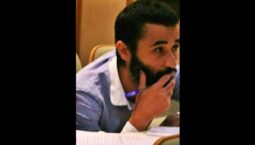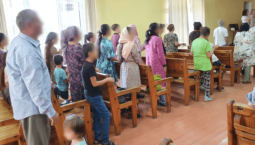Church planting

God's intention is not for Christians to be isolated, but to be part of a Christian community. This is true in free countries, but also in countries where Christians risk persecution.
While Europe is becoming increasingly secularized, in the Muslim world there is currently interest in the Christian faith and people are becoming Christians. Many are attracted to Jesus. Jesus' message of forgiveness and love of enemies stands in stark contrast to the messages of extremists. Jesus' miracles bring hope to a hopeless world. But while the church's challenge in Europe is that many Europeans are not interested in Christianity, this is not the problem in several countries in the Middle East, Central Asia and Asia.
The challenge here is rather that seekers and new believers are educated in the Christian faith. That their faith is not just an opt-out of Islam, but also an opt-in. That theirs is anchored in the Bible so that it lasts.
That's why the Danish European Mission is involved in church planting so that new Christians have a community.
Theological education
In this context, theological education of pastors and leaders is crucial. In the emerging churches of the Middle East, Central Asia and Asia, many pastors have at best only short Bible studies and at worst no theological training at all.
As a result, bias can creep into preaching, congregations can become unhealthy and fall prey to actual heresies that circulate on YouTube, for example.
That's why Danish European Mission's intercessors and donors have since ensured that 60 pastors and leaders in predominantly Muslim countries have received education at diploma or bachelor's level. Currently, 80 pastors and leaders receive training in theology, but also church history, leadership, pastoral care, ethics, economics and other subjects.










